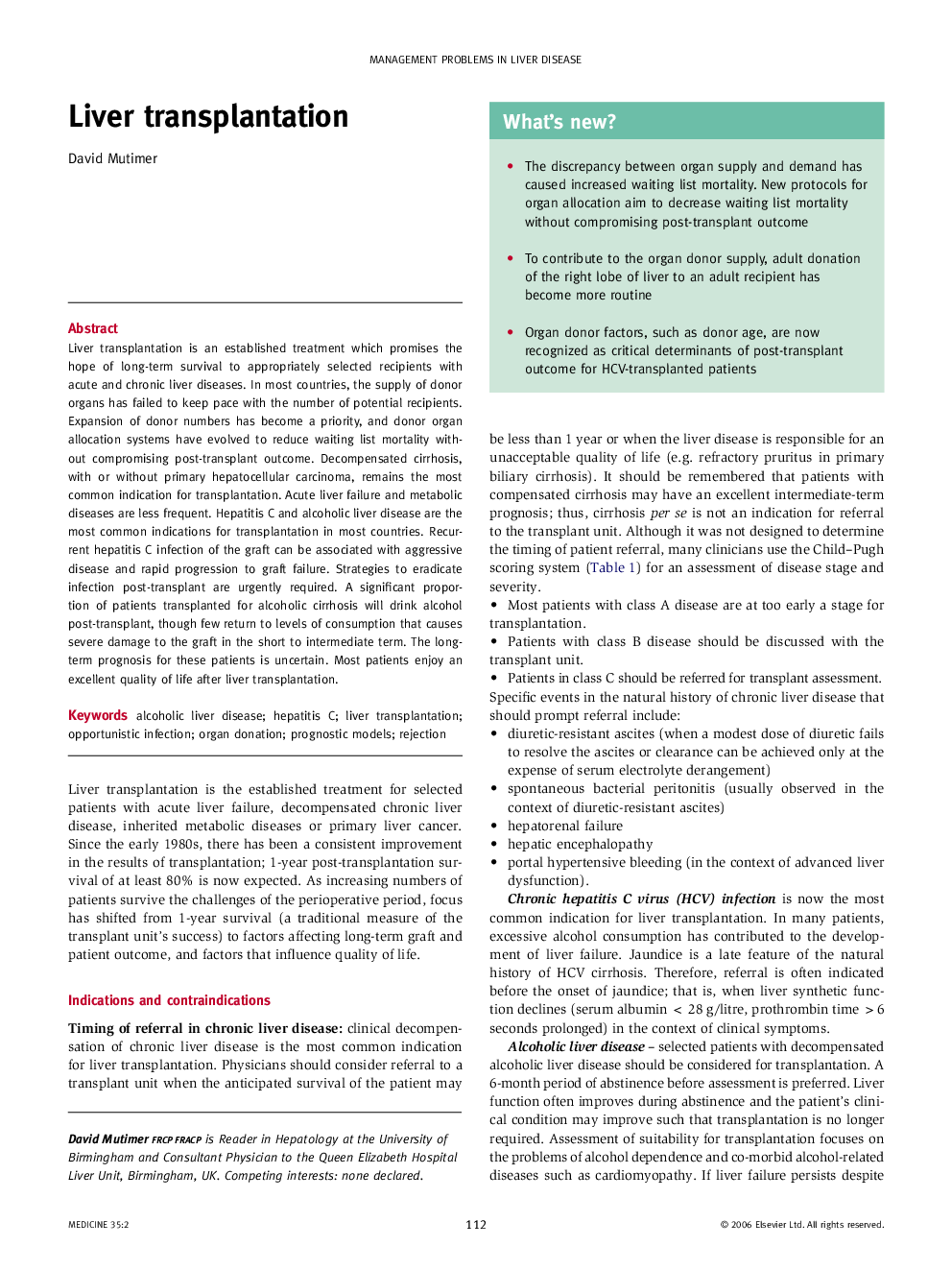| Article ID | Journal | Published Year | Pages | File Type |
|---|---|---|---|---|
| 3805797 | Medicine | 2007 | 4 Pages |
Abstract
Liver transplantation is an established treatment which promises the hope of long-term survival to appropriately selected recipients with acute and chronic liver diseases. In most countries, the supply of donor organs has failed to keep pace with the number of potential recipients. Expansion of donor numbers has become a priority, and donor organ allocation systems have evolved to reduce waiting list mortality without compromising post-transplant outcome. Decompensated cirrhosis, with or without primary hepatocellular carcinoma, remains the most common indication for transplantation. Acute liver failure and metabolic diseases are less frequent. Hepatitis C and alcoholic liver disease are the most common indications for transplantation in most countries. Recurrent hepatitis C infection of the graft can be associated with aggressive disease and rapid progression to graft failure. Strategies to eradicate infection post-transplant are urgently required. A significant proportion of patients transplanted for alcoholic cirrhosis will drink alcohol post-transplant, though few return to levels of consumption that causes severe damage to the graft in the short to intermediate term. The long-term prognosis for these patients is uncertain. Most patients enjoy an excellent quality of life after liver transplantation.
Keywords
Related Topics
Health Sciences
Medicine and Dentistry
Medicine and Dentistry (General)
Authors
David Mutimer,
